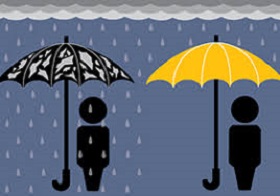Analytics, Estonia, Financial Services, Insurance, Medicine
International Internet Magazine. Baltic States news & analytics
Thursday, 25.04.2024, 01:31
Up to 120,000 people without health insurance in Estonia
 Print version
Print version |
|---|
While the number of people without medical insurance in Estonia now is the smallest in a decade, it is still high compared with the average for the member states of the Organization for Economic Cooperation and Development (OECD) and the European Union, the Ministry of Social Affairs said.
The overwhelming majority of the residents who don't have health insurance in the long term have intermittent coverage. The analysis also reveals that absence of medical insurance is unevenly divided among population groups.
"Under-coverage is the most widespread among men, people of the best working age, people with a language other than Estonian as their first language, and people with a lower education level. Also vulnerable are mothers of children who have recently turned three whose entry or return to the labor market is not smooth," the manager of Praxis, Tarmo Juristo, said.
He said that intermittency of health insurance coverage for women was significantly more often linked to parenthood than in the case of men.
The reasons for disruptions in insurance coverage or absence thereof lie both in the labor market and the social system, the study finds.
"Looking at the labor market, we can see thousands of people who have no medical insurance as a result of irregular income or the nature of their work. At present many persons in free professions and people doing non-traditional work, who have no contract with a specific employer, are in an uncertain situation. The current system is not flexible to allow different forms of work and is becoming increasingly obsolete," Juristo said.
Among other things, the analysis recommends to change the criteria of employment and payments in medical insurance. Where at present social tax paid for the last calendar month is counted in the assignment of insurance coverage, according to Praxis this period could be extended to 12 months.
"A change like this would enable to increase flexibility of the labor market, reduce structural labor shortage and help give equal treatment to the people who pay the same amount of social tax over the year regardless of the nature of their employment relationship," Juristo added.
The analysis also points out that people who are entitled to health insurance coverage via the social system often are not informed or motivated enough to use the different possibilities available for seeking medical insurance.
"For instance, a big portion of new unemployed do not register with the Unemployment Insurance Fund because they do not qualify for benefits and allowances, and are hence deprived of medical insurance as well," Juristo said, adding that coverage can be increased only by little through raising awareness and influencing people's behavior.
Right now there are altogether some 50 different bases for qualifying for medical insurance, which are difficult for the state to manage and the citizens to know. In this connection, the analysis by Praxis highlights the possibility of moving towards a system of universal coverage valid for all residents of Estonia.
"By fine-tuning the present system health insurance coverage could be increased by one percent. Universal insurance would be a large-scale reform requiring a fundamental change in the financing of healthcare and the tax system. Which of the scenarios would be manageable for Estonia and take into account the population and labor market changes we are faced with requires a more in-depth analysis and societal debate," Juristo said.
A universal system of insurance would give everyone health insurance by untying it from the payment of social tax.








 «The Baltic Course» Is Sold and Stays in Business!
«The Baltic Course» Is Sold and Stays in Business!

